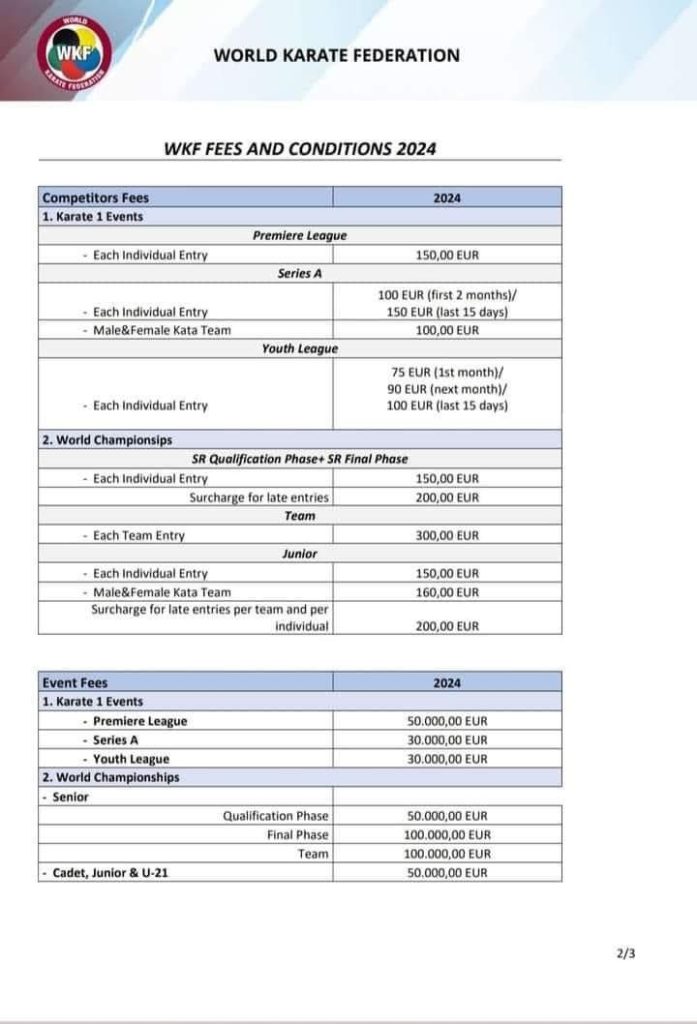The world of karate is abuzz with discussions and concerns regarding the recent fee increases imposed by the World Karate Federation (WKF) for the year 2024 (Facebook groups). These changes have ignited a debate about their impact on athletes and their respective federations, as well as the overall nature of competitive karate. Critics argue that these fee hikes may create a barrier for aspiring athletes, particularly those from less affluent nations, while some even question whether the sport’s essence is being overshadowed by financial considerations.
The Rising Costs
One of the primary concerns raised by athletes and coaches is the significant increase in fees, particularly related to competition attire and gear. Under the new regulations, athletes are required to wear a full package of red and blue kimonos, along with protective gear, which can cost up to approximately 600€. This cost is in addition to other expenses such as travel, accommodation, and registration fees, making competitive karate an increasingly expensive endeavor.
The Impact on Athletes
Athletes and coaches are voicing their disappointment and frustration over these rising costs. For many, the sport of karate has been an opportunity to pursue their passion and dreams of becoming world champions or representing their nations on the international stage. However, the prohibitive cost of participation is now threatening to dash those dreams for some.
In particular, athletes from countries with limited resources and less financially robust federations are feeling the brunt of these fee increases. It is becoming increasingly difficult for them to compete on a level playing field with athletes from wealthier nations or those with well-funded federations.
The Potential Catastrophic Impact on Nations
The consequences of these fee hikes are not limited to individual athletes alone. Entire nations may suffer as a result. Smaller or less economically developed countries may struggle to send their athletes to international competitions, including the World Championships. This could lead to a situation where certain countries are effectively excluded from participation due to financial constraints, ultimately diminishing the diversity and inclusivity of the sport.
The Evolution of Competitive Karate
The sentiments expressed by some athletes and coaches point to a broader concern about the evolution of competitive karate. Some argue that the sport has transformed into a playground for the affluent, where success is determined as much by financial backing as by talent and dedication.
The influence of money on competitive karate is not a new phenomenon but has seemingly been exacerbated by the sport’s inclusion in the Olympic program. The quest for Olympic glory has led to increased investment and commercialization, shifting the focus from the purity of the art to the pursuit of financial gains.



Conclusion
The 2024 fee increases imposed by the World Karate Federation have ignited a passionate debate within the karate community. Athletes and coaches are grappling with the rising costs, which may hinder the dreams of aspiring champions, especially those from less financially privileged nations. The potential exclusion of certain nations due to financial constraints raises concerns about the sport’s inclusivity and diversity.
Moreover, there is a growing sentiment that the essence of competitive karate is being overshadowed by financial considerations, with success increasingly determined by financial backing rather than raw talent and dedication. As the sport continues to evolve, it is essential to strike a balance between commercial interests and the values that have made karate a beloved discipline for generations. Only then can competitive karate thrive while remaining true to its roots.


